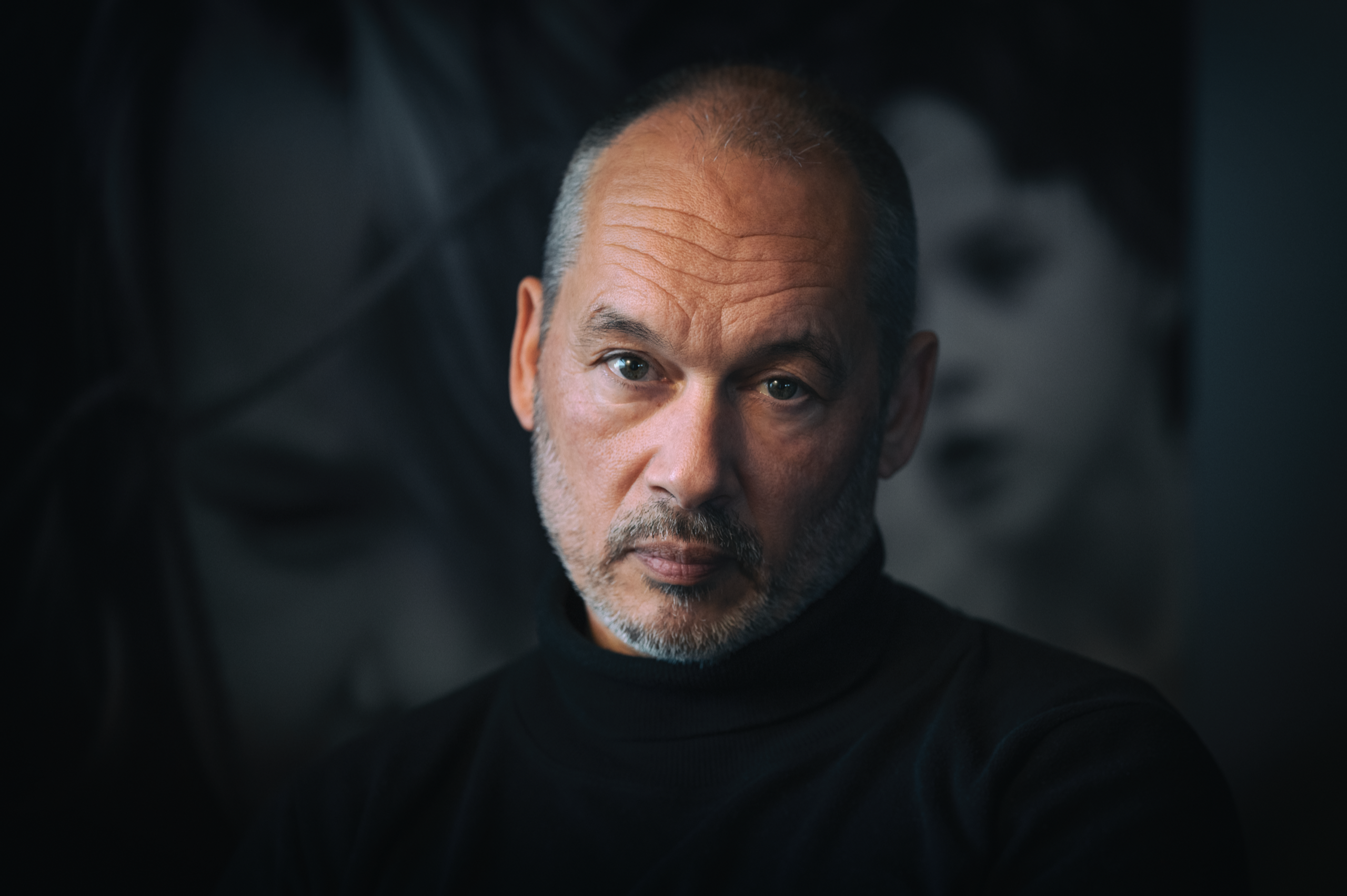Roland Gaedtgens
Meet Roland Gaedtgens, an artist whose path meandered from being a professional pianist, arranger and composer to finding his passion in the world of commercial filmmaking, film editing, and color grading. Gaedtgens began his career in the enchanting realm of music, composing captivating melodies for well-known brands. However, at the age of 42, he ventured into a new chapter of his life as a professional photographer. Attending the Fotovakschool in Amsterdam, he quickly started applying his photography skills in practical projects and did a fashion shoot in Milan, Italy. Surprisingly, this led him to his first film and editing jobs for Albert Heijn and Tommy Hilfiger. Though he lacked prior experience in filming, his expertise in photography allowed him to experiment and play creatively with light, adding a unique touch to his early film projects.
As time passed, Gaedtgens' passion for filmmaking grew, and he sought to delve deeper into the art of storytelling. Drawing upon his diverse talents acquired over the years – music composition, arrangement, production, photography, filming, editing, and color grading – he set out on a mission to capture narratives through the lens of his camera. One notable aspect of Gaedtgens' work is his dedication to authenticity. He cherishes the realness of human emotions and endeavors to present genuine individuals and their stories to the audience. His latest documentary, featuring Benjamin Feliksdal, exemplifies this approach. Filmed entirely in evocative
black and white, the project captures Feliksdal's journey with unpretentiousness, revealing genuine answers and first-hand memories, untouched by rehearsals or preconceived questions. In his films, Roland Gaedtgens remains committed to honesty – both to himself and the subjects he portrays. His distinctive style is marked by purity and emotional depth, reflecting the unfiltered essence of the people he captures on screen. With each project, Gaedtgens takes on the role of an artist and a storyteller, aspiring to capture life's fleeting moments in all their authenticity. His work, an interweaving of his musical roots and heartfelt filmmaking, resonates with audiences, touching hearts with its heartfelt simplicity.
Your project has entered in our festival. What is your project about?
The film is about 83-year-old Benjamin Feliksdal. Benjamin is a former principal dancer of the Dutch National Ballet. To this day, at the age of 83, Benjamin still dances and is involved with ballet 24/7. Choreographer and also dancer Robin van Zutphen has created a choreography specifically for Benjamin. The choreography is about Benjamin's life. In his younger years Benjamin danced with the world's most famous ballet dancers, including Rudolf Nureyev. After his career as a ballet dancer, he started his own dance school, ultimately playing a significant role in the rise of jazz ballet as we still know it today. In the Netherlands Benjamin played a crucial role in the careers of many individuals, including Dutch actors, TV personalities and people from the entertainment industry such as the world-renowned illusionist Hans Klok. In this documentary we get to know Benjamin as a person, as a dancer and learn about the impact he has had on others and how he continues to shape their lives to this day.
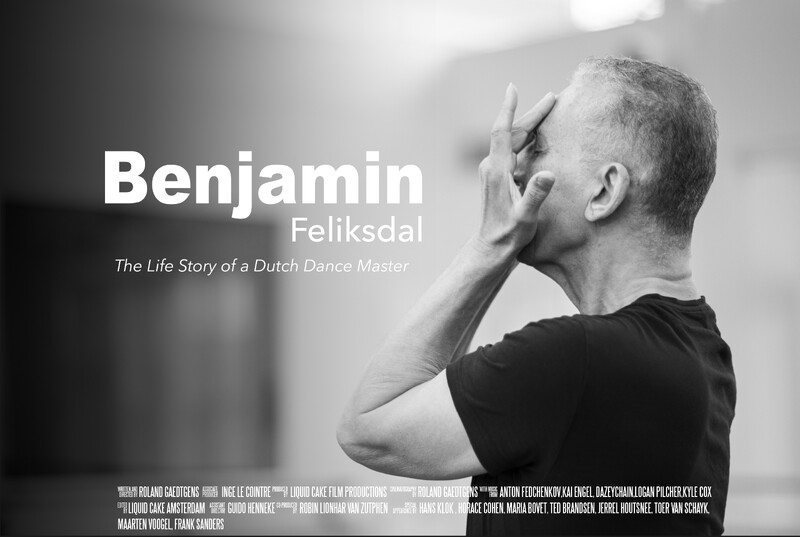
What are your ambitions with your project?
My ambition is to introduce Benjamin to the world. This man has contributed so much to the dance world but in my opinion he has never truly received the credit he deserves. He was an absolute talent in ballet and jazz dance. Additionally, he was an inspiration to so many people through his way of life, determination, and perfectionism. To this day he continues to inspire people. It would be wonderful if this documentary could reach a wide audience allowing people to draw strength from the optimism that this 83-year-old man still exudes.
Tell us something about your shooting? What pleasantly surprised you?
What greatly helped me while making the documentary was working with dancers. Dancers are accustomed to focusing intensely on themselves. This has to do with concentration, professionalism, and love for their craft. As a director and in this case als as a cameraman, it was easy for me to film the rehearsals and conversations between Robin and Benjamin in a somewhat "anonymous" manner. This created a relaxed atmosphere for filming, allowing viewers to experience the intimacy of the conversations. As a director I was able to set the stage and create a relaxed atmosphere in which I could capture the film shots I had envisioned. Being a photographer as well I approach my work as a director and cameraman with a photographer's eye, always searching for those photographic shots. With dancers like Benjamin and Robin it was not very complicated or challenging, but rather a pleasure to work with them.
For what group of spectators is your film targeted?
The film is for anyone who has a love and passion for ballet, jazz dance, or dance in general. The film also conveys a message that sometimes age doesn't matter, and that motivation and perseverance are often crucial to achieving something in life. Therefore, I believe that even young people will feel inspired when watching the documentary. Perhaps the decision to make the film in black and white will also attract those with a love for photography.
Why should distributors buy your film?
We live in a time where we mainly lead hectic lives. Everything has to be quick, and goals need to be achieved rapidly. We see this reflected in everything around us, from loud TV commercials to advancing in our careers. Everything seems rushed. I believe that this documentary shows that life sometimes requires moments of calm, reflection, discipline, and perseverance. I think that by taking the time in the editing process to make this tranquility palpable, we can inspire the viewer to start their day differently or approach their goals in a new way. The film could therefore be inspiring for many people. For this reason, the documentary might be interesting for distributors because it conveys a positive message in a world where we could all use a bit of inspiration and positivity.
How would you specify your work? What characterizes your film?
I think that my work reflects a strong passion for photography. Additionally, I have always been greatly interested in people and their stories. The desire to translate those stories into visuals is what drives me as a director and as a cinematographer.
Why did you decided to become a filmmaker?
I decided 16 years ago that I wanted to become a photographer and filmmaker. I grew up with a father and an uncle who were always involved in photography. I even had a darkroom in my room where my father used to develop photos where I often assisted him. As a child I aspired to become a photographer myself. Eventually I got involved in music at an early age and spent the first 22 years working as a pianist, composer, and lyricist. Eventually I decided to temporarily set aside the piano and dedicate my life to photography and filmmaking. I started as a commercial photographer and gradually transitioned into the world of commercial filmmaking. However, I now realize that telling real stories is my ultimate dream and goal. This documentary is a direct result of that realization.
Who is your role model? I am a big fan of David Lynch, Joel and Ethan Coen, MartinScorsese, and the documentary maker Louis Theroux.
Which movies are your favorites? Why?
One of my favorite series is Twin Peaks by David Lynch. But a series like Fargo by the Coen Brothers is also brilliantly crafted. The documentaries by Louis Theroux continue to be an example for me of how to make a documentary.
Where do you look for inspiration for your films?
I draw my inspiration mainly from the stories and character traits of people. Sincerity is a prerequisite for me in both my photography and how I capture people on film.
Which topics interest you the most?
I notice that my interest is very much focused on what drives people to achieve something and how they accomplish it. This can, as in the case of this documentary, involve a creative process, the determination to achieve something and ultimately reaching that goal. However, I can also be immensely intrigued by people's beliefs and how they deal with them as well as exploring the potential consequences for society at times.
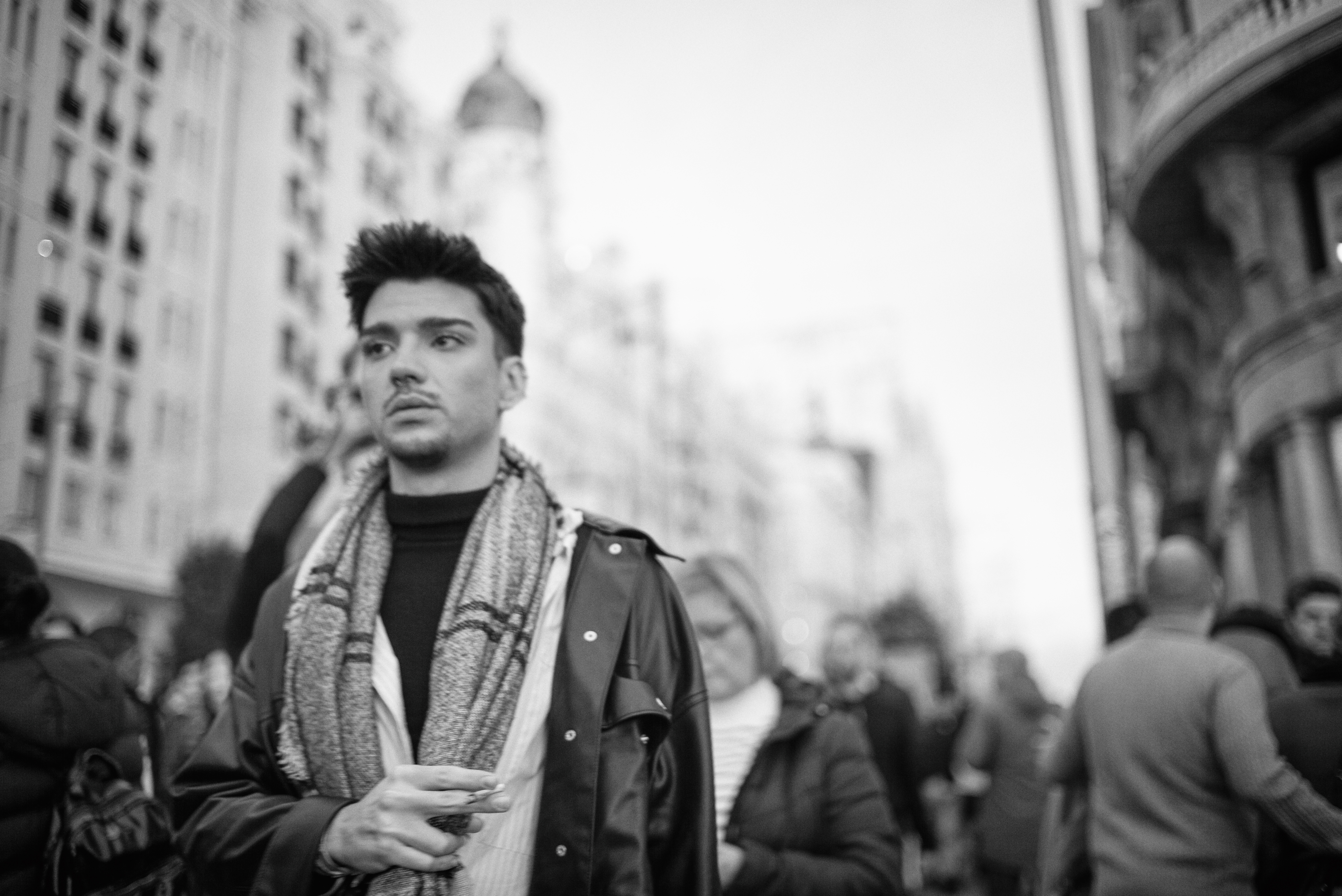
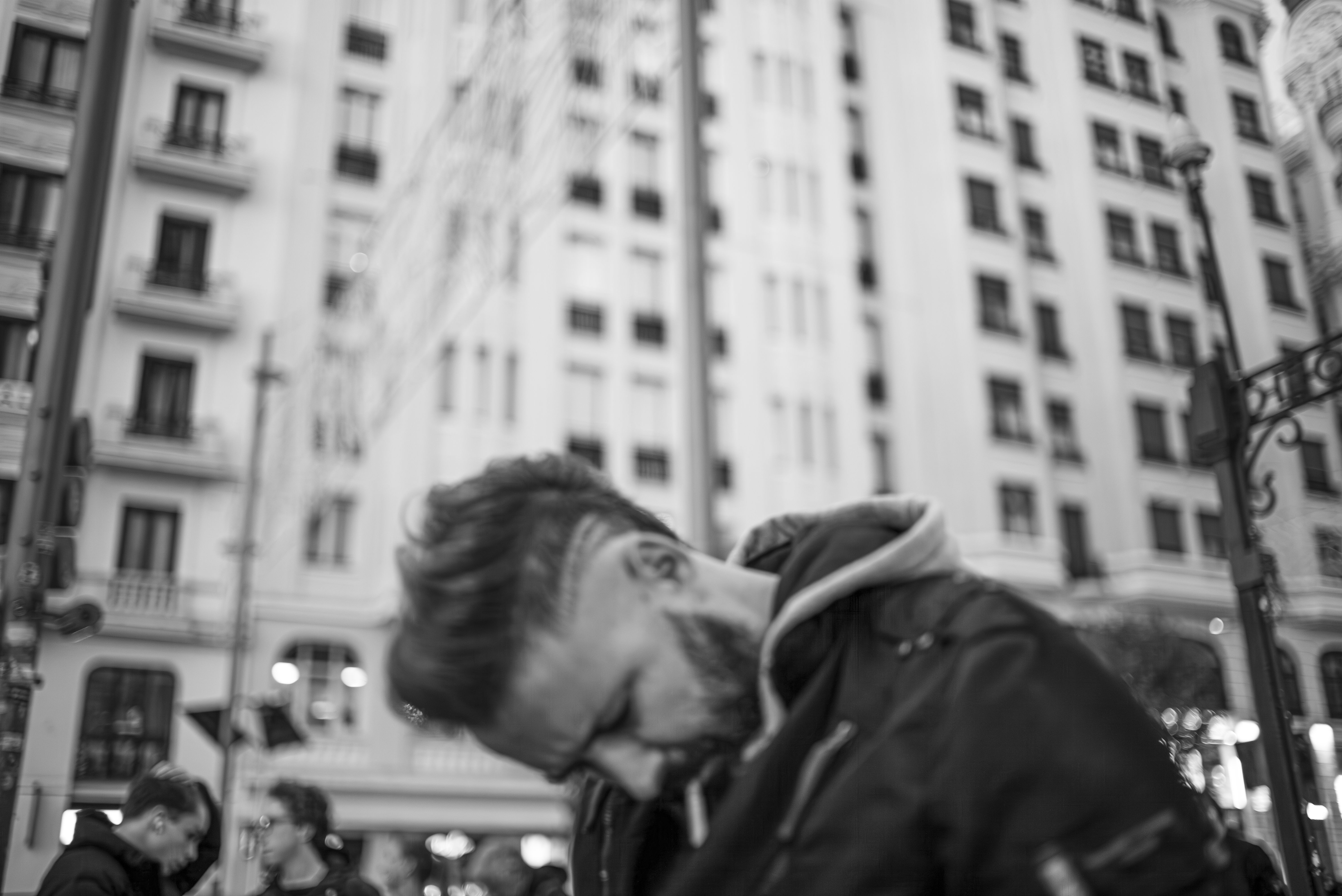
What do you consider your greatest achievement in your career?
I believe I've been fortunate to find a beautiful combination of creative disciplines that intersect with each other in the fields of music (composing, producing), photography, and now filmmaking. A film cannot exist without a photographic perspective, but it also relies on music. Furthermore, my experience in music aids me in the editing process and achieving the flow/rhythm that a film requires. Perhaps the best thing I've achieved is my patience and passion to bring to life the ideas in my mind and actually go ahead and do them. In the end you always have to decide at some point to take action and the rest follows naturally as long as you remain driven and focused.
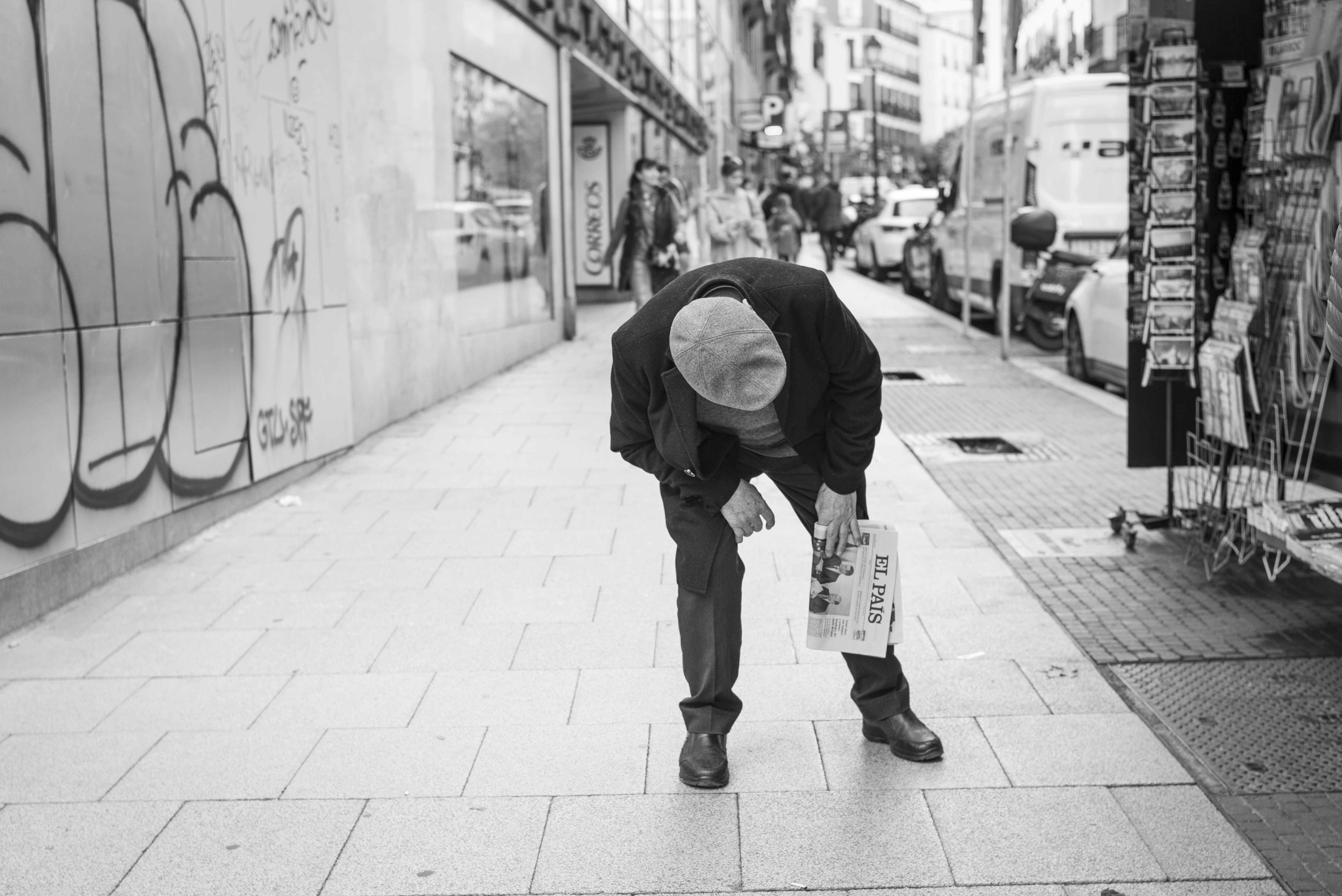
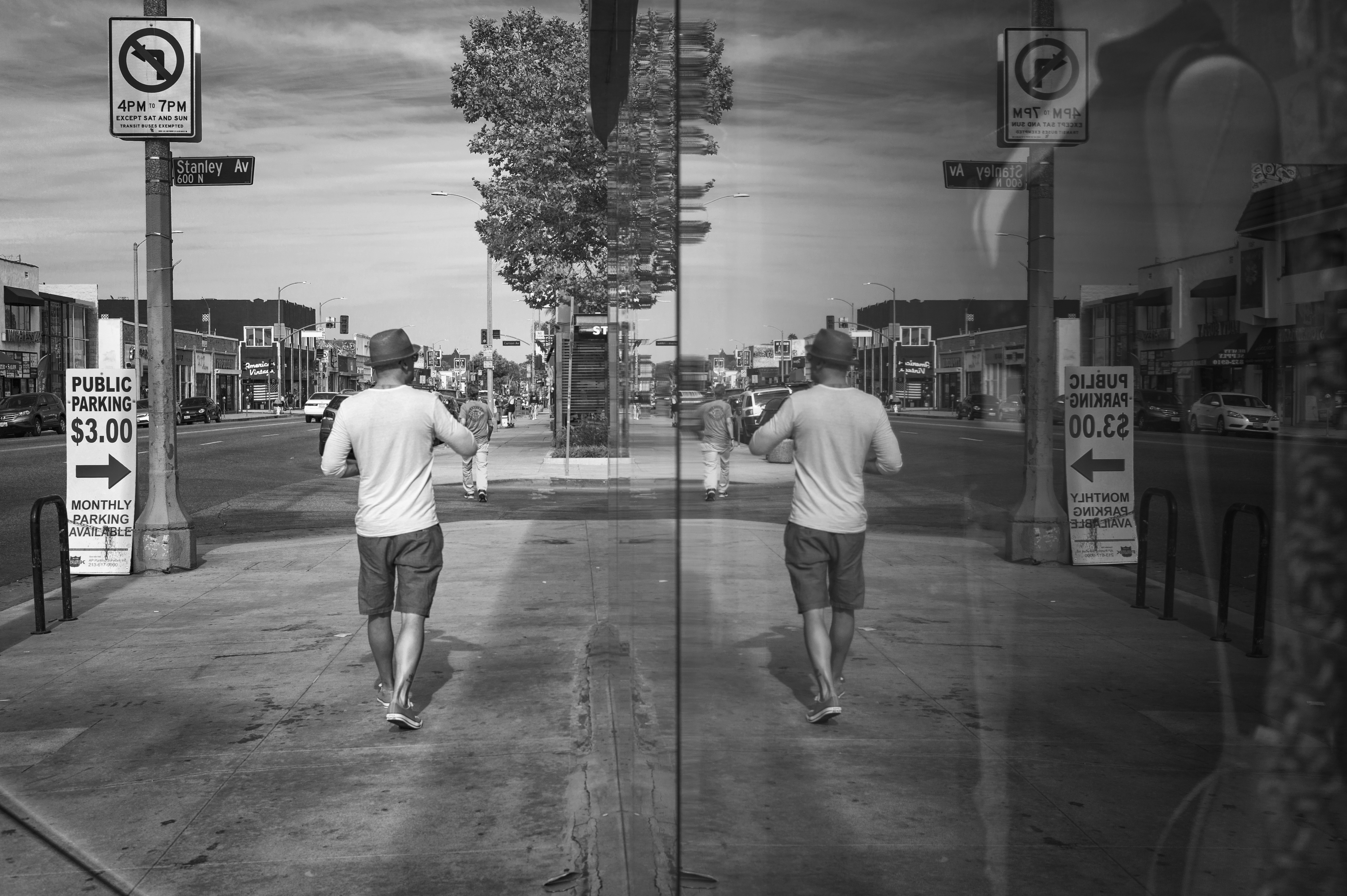
What do you consider most important about filming?
I think you always need to have a good story to tell. However, equally important is the way you visually present the subject of the film. I strongly believe in capturing shots the way you want them to be. So, not shooting with a lot of extra space and then cropping everything in the edit. I think the way you capture shots reflects the moment you are filming and I believe you can only achieve that on the spot. Therefore, I always film in a way that aligns with how I want it to appear in the final edit.
Which film technique of shooting do you consider the best?
I really love having a handheld camera. This way you have the freedom to anticipate your subject. Additionally, I always use cinema lenses, and my depth of field is crucial for conveying the feeling I want in a shot.
How would you rate/What is your opinion about current filmmaking?
I believe that the quality of filmmaking has improved tremendously. Especially Scandinavian films are sometimes beautifully crafted. There is often a lot of time taken to delve into a story, and great care is frequently given to the cinematography and editing. Additionally, storytelling plays a crucial role. Sometimes, the story is so intriguing that the visuals, in a way, can take a back seat, yet the overall impact remains incredibly strong. In my opinion, it's always the combination of everything.
What can disappoint you in a movie?
I think the story, in combination with the actors and how they are portrayed on screen, is the overall leading factor in a film. If any of these aspects are not right, it has consequences for the overall experience of such a film.
Who supports you in your film career?
I have always had tremendous support from my family. Unfortunately, my mother never got to see my work in film. My father was the one who once said I should follow my heart in what I wanted in my life. My uncle played a role in getting things started and motivated me in achieving what I have now accomplished. My wife always manages to give me the final push at moments when I doubt what I am doing. My children are my driving force in everything I do in life. If I can be an example for them that is beneficial, then my life is already a success.
As time passed, Gaedtgens' passion for filmmaking grew, and he sought to delve deeper into the art of storytelling. Drawing upon his diverse talents acquired over the years – music composition, arrangement, production, photography, filming, editing, and color grading – he set out on a mission to capture narratives through the lens of his camera. One notable aspect of Gaedtgens' work is his dedication to authenticity. He cherishes the realness of human emotions and endeavors to present genuine individuals and their stories to the audience. His latest documentary, featuring Benjamin Feliksdal, exemplifies this approach. Filmed entirely in evocative
black and white, the project captures Feliksdal's journey with unpretentiousness, revealing genuine answers and first-hand memories, untouched by rehearsals or preconceived questions. In his films, Roland Gaedtgens remains committed to honesty – both to himself and the subjects he portrays. His distinctive style is marked by purity and emotional depth, reflecting the unfiltered essence of the people he captures on screen. With each project, Gaedtgens takes on the role of an artist and a storyteller, aspiring to capture life's fleeting moments in all their authenticity. His work, an interweaving of his musical roots and heartfelt filmmaking, resonates with audiences, touching hearts with its heartfelt simplicity.
Your project has entered in our festival. What is your project about?
The film is about 83-year-old Benjamin Feliksdal. Benjamin is a former principal dancer of the Dutch National Ballet. To this day, at the age of 83, Benjamin still dances and is involved with ballet 24/7. Choreographer and also dancer Robin van Zutphen has created a choreography specifically for Benjamin. The choreography is about Benjamin's life. In his younger years Benjamin danced with the world's most famous ballet dancers, including Rudolf Nureyev. After his career as a ballet dancer, he started his own dance school, ultimately playing a significant role in the rise of jazz ballet as we still know it today. In the Netherlands Benjamin played a crucial role in the careers of many individuals, including Dutch actors, TV personalities and people from the entertainment industry such as the world-renowned illusionist Hans Klok. In this documentary we get to know Benjamin as a person, as a dancer and learn about the impact he has had on others and how he continues to shape their lives to this day.

What are your ambitions with your project?
My ambition is to introduce Benjamin to the world. This man has contributed so much to the dance world but in my opinion he has never truly received the credit he deserves. He was an absolute talent in ballet and jazz dance. Additionally, he was an inspiration to so many people through his way of life, determination, and perfectionism. To this day he continues to inspire people. It would be wonderful if this documentary could reach a wide audience allowing people to draw strength from the optimism that this 83-year-old man still exudes.
Tell us something about your shooting? What pleasantly surprised you?
What greatly helped me while making the documentary was working with dancers. Dancers are accustomed to focusing intensely on themselves. This has to do with concentration, professionalism, and love for their craft. As a director and in this case als as a cameraman, it was easy for me to film the rehearsals and conversations between Robin and Benjamin in a somewhat "anonymous" manner. This created a relaxed atmosphere for filming, allowing viewers to experience the intimacy of the conversations. As a director I was able to set the stage and create a relaxed atmosphere in which I could capture the film shots I had envisioned. Being a photographer as well I approach my work as a director and cameraman with a photographer's eye, always searching for those photographic shots. With dancers like Benjamin and Robin it was not very complicated or challenging, but rather a pleasure to work with them.
For what group of spectators is your film targeted?
The film is for anyone who has a love and passion for ballet, jazz dance, or dance in general. The film also conveys a message that sometimes age doesn't matter, and that motivation and perseverance are often crucial to achieving something in life. Therefore, I believe that even young people will feel inspired when watching the documentary. Perhaps the decision to make the film in black and white will also attract those with a love for photography.
Why should distributors buy your film?
We live in a time where we mainly lead hectic lives. Everything has to be quick, and goals need to be achieved rapidly. We see this reflected in everything around us, from loud TV commercials to advancing in our careers. Everything seems rushed. I believe that this documentary shows that life sometimes requires moments of calm, reflection, discipline, and perseverance. I think that by taking the time in the editing process to make this tranquility palpable, we can inspire the viewer to start their day differently or approach their goals in a new way. The film could therefore be inspiring for many people. For this reason, the documentary might be interesting for distributors because it conveys a positive message in a world where we could all use a bit of inspiration and positivity.
How would you specify your work? What characterizes your film?
I think that my work reflects a strong passion for photography. Additionally, I have always been greatly interested in people and their stories. The desire to translate those stories into visuals is what drives me as a director and as a cinematographer.
Why did you decided to become a filmmaker?
I decided 16 years ago that I wanted to become a photographer and filmmaker. I grew up with a father and an uncle who were always involved in photography. I even had a darkroom in my room where my father used to develop photos where I often assisted him. As a child I aspired to become a photographer myself. Eventually I got involved in music at an early age and spent the first 22 years working as a pianist, composer, and lyricist. Eventually I decided to temporarily set aside the piano and dedicate my life to photography and filmmaking. I started as a commercial photographer and gradually transitioned into the world of commercial filmmaking. However, I now realize that telling real stories is my ultimate dream and goal. This documentary is a direct result of that realization.
Who is your role model? I am a big fan of David Lynch, Joel and Ethan Coen, MartinScorsese, and the documentary maker Louis Theroux.
Which movies are your favorites? Why?
One of my favorite series is Twin Peaks by David Lynch. But a series like Fargo by the Coen Brothers is also brilliantly crafted. The documentaries by Louis Theroux continue to be an example for me of how to make a documentary.
Where do you look for inspiration for your films?
I draw my inspiration mainly from the stories and character traits of people. Sincerity is a prerequisite for me in both my photography and how I capture people on film.
Which topics interest you the most?
I notice that my interest is very much focused on what drives people to achieve something and how they accomplish it. This can, as in the case of this documentary, involve a creative process, the determination to achieve something and ultimately reaching that goal. However, I can also be immensely intrigued by people's beliefs and how they deal with them as well as exploring the potential consequences for society at times.


What do you consider your greatest achievement in your career?
I believe I've been fortunate to find a beautiful combination of creative disciplines that intersect with each other in the fields of music (composing, producing), photography, and now filmmaking. A film cannot exist without a photographic perspective, but it also relies on music. Furthermore, my experience in music aids me in the editing process and achieving the flow/rhythm that a film requires. Perhaps the best thing I've achieved is my patience and passion to bring to life the ideas in my mind and actually go ahead and do them. In the end you always have to decide at some point to take action and the rest follows naturally as long as you remain driven and focused.


What do you consider most important about filming?
I think you always need to have a good story to tell. However, equally important is the way you visually present the subject of the film. I strongly believe in capturing shots the way you want them to be. So, not shooting with a lot of extra space and then cropping everything in the edit. I think the way you capture shots reflects the moment you are filming and I believe you can only achieve that on the spot. Therefore, I always film in a way that aligns with how I want it to appear in the final edit.
Which film technique of shooting do you consider the best?
I really love having a handheld camera. This way you have the freedom to anticipate your subject. Additionally, I always use cinema lenses, and my depth of field is crucial for conveying the feeling I want in a shot.
How would you rate/What is your opinion about current filmmaking?
I believe that the quality of filmmaking has improved tremendously. Especially Scandinavian films are sometimes beautifully crafted. There is often a lot of time taken to delve into a story, and great care is frequently given to the cinematography and editing. Additionally, storytelling plays a crucial role. Sometimes, the story is so intriguing that the visuals, in a way, can take a back seat, yet the overall impact remains incredibly strong. In my opinion, it's always the combination of everything.
What can disappoint you in a movie?
I think the story, in combination with the actors and how they are portrayed on screen, is the overall leading factor in a film. If any of these aspects are not right, it has consequences for the overall experience of such a film.
Who supports you in your film career?
I have always had tremendous support from my family. Unfortunately, my mother never got to see my work in film. My father was the one who once said I should follow my heart in what I wanted in my life. My uncle played a role in getting things started and motivated me in achieving what I have now accomplished. My wife always manages to give me the final push at moments when I doubt what I am doing. My children are my driving force in everything I do in life. If I can be an example for them that is beneficial, then my life is already a success.
